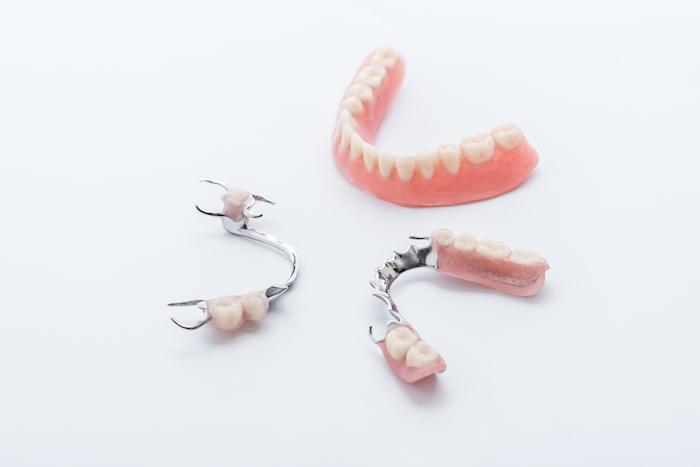Full or partial dentures can be an excellent choice for replacing missing teeth. With today’s technology and materials, today’s prosthetics fit and function comfortably and look completely natural.
At Trident Dental in Houston, Texas, our expert dental team takes great care in treating tooth loss with the most advanced solutions, including full and partial dentures. We believe educated patients are essential, so read on to learn about dentures and how to adjust to them.
About dentures
Dentures are well-made synthetic teeth constructed to replace some or all of your natural teeth. Our dentists might recommend dentures if multiple teeth have been lost. Dentures are also a more affordable solution for replacing a lost tooth than dental implants.
When you are missing some or all of your teeth, dentures help with eating, speaking, and maintaining the structure of your face and beautiful smile. Dentures can either be complete dentures that replace all teeth or partial dentures that replace some teeth.
Trident Dental experts recommend the following:
Getting used to living with dentures
Getting dentures requires some changes in your routine. After getting dentures, here’s how you can start to adjust.
Expect an initial period of adjustment to wearing dentures
Initially, your dentures may cause some mild soreness or irritation, as well as increased saliva production. Still, with time, your muscles adjust and comfortably maintain the positioning of the dentures throughout the day.
To care for your dentures
Every night, you need to care for dentures just as you would care for your natural teeth. Use a denture cleaner to clean your dentures after removing them, then place your dentures in a denture solution overnight.
It’s also essential to make sure you brush your gums, as well as any remaining natural teeth after removing your dentures. This maintains gum health and keeps your circulation in the area strong.
Always stand over a sink filled with water or a towel while holding your dentures to keep them from breaking if they get dropped.
Practice eating and speaking
Eating with dentures is a bit different than doing so with natural teeth. Initially, cut your food into small pieces, and favor softer foods until you get used to eating with them. Make sure to avoid foods that are difficult to chew with dentures, like sticky and hard foods.
Keep seeing your dentist
We recommend that patients with dentures see the dentist as frequently as patients with natural teeth. This means still getting dental cleanings every six months.
Your dentist also checks your dentures at your routine checkup to ensure they’re in good condition and don’t need any adjustments. You should make an appointment or no longer fit properly.
For more information about getting dentures for yourself or a loved one, call Trident Dental or request an appointment using our online request tool.

